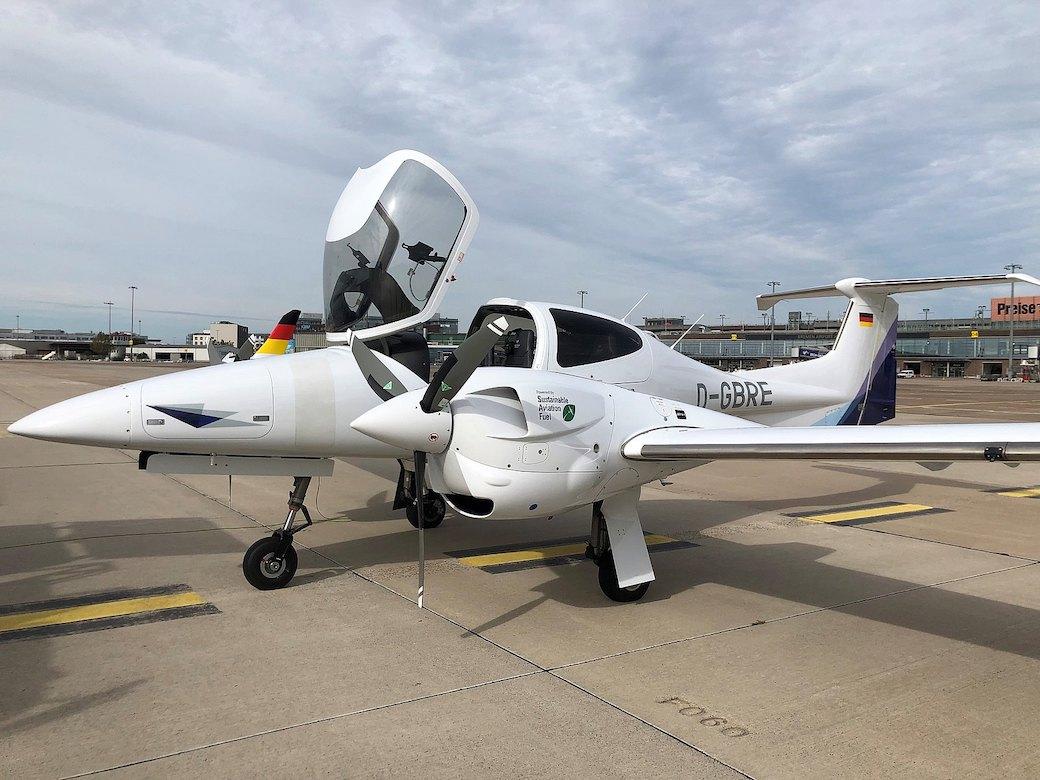
The DA42 trainer operated by Lufthansa’s European Flight Academy flew on a 33% blend of SAF.
Credit: Bremen Airport
A Diamond DA42 training aircraft has flown for the first time on sustainable aviation fuel (SAF) at the European Flight Academy, part of Lufthansa Aviation Training. The circuit flights were conducted at Bremen Airport in Germany, using blended fuel produced by Neste and supplied by World Fuel...
Subscription Required
This content requires a subscription to one of the Aviation Week Intelligence Network (AWIN) bundles.
Schedule a demo today to find out how you can access this content and similar content related to your area of the global aviation industry.
Already an AWIN subscriber? Login
Did you know? Aviation Week has won top honors multiple times in the Jesse H. Neal National Business Journalism Awards, the business-to-business media equivalent of the Pulitzer Prizes.
